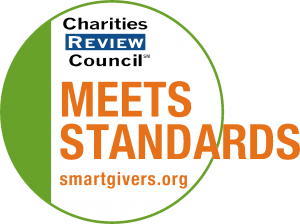Impact and Programs
Accomplishments
LDA directly served 3,261 individuals during FY 2015 (Sept. 1, 2014 – Aug. 31, 2015), an increase of 895 individuals served over the previous fiscal year. In addition to the programs listed below, LDA provides direct service through phone consultations, family nights, early literacy programming and workshops. Of those served, 81% were children and families; 19% were adults; 80% were low-income; and 74% were people of color.
1. Learning Connections Program served 570 students, approximately 95% of whom were low-income and 90% children of color. For those receiving reading and math interventions with two benchmark data points, 298 of 307 or 97% showed positive growth, and 256 of 307 or 83% exceeded expected growth expectations, narrowing their achievement gaps. These are the highest program results in recent years.
2. Assessment and Tutoring Services were provided to 69 individuals. 92% of tutoring students who completed 12 or more sessions achieved their target goal. 100% of executive function skill building clients who completed 5 sessions made progress as reported by the instructor.
3. Learning Disability & ADHD Support Services served 683 adults who gained skills and resources to better manage their challenges and achieve their academic, vocational, and personal goals. 95% of symposium attendees reported gaining useful knowledge or strategies. 100% of survey participants gave high ratings of the ADHD support group.
4. Transition Services helped 10 students at Bethel University in collaboration with the Autism Society of Minnesota. 100% (8 of 8) of students surveyed reported gaining useful strategies to help with their transition to college.
Current Goals
LDA Minnesota’s goal is to improve learning outcomes for Minnesotans achieving below their potential, especially for individuals challenged by learning disabilities, attention deficits, and economic or educational disadvantage. Our 2016 program goals:
1. Deliver Learning Connections program academic interventions to 540 low-income children at-risk for reading and/or math failure at nine urban schools, provide 85-100 pre-school children and their parents with quality training and books to increase their emerging literacy skills, distribute 5,000 books to struggling, low-income readers, and host family engagement activities to help reinforce literacy skills at home.
2. LDA’s Transition Program will help 70 teens and 20 young adults with learning disabilities, attention deficits, autism or other learning challenges to develop the skills required to meet their transition goals so they achieve their potential beyond high school.
3. Assessment, Executive Function Skill Building, and Tutoring Services will help 97 individuals understand how they learn and gain strategies to improve their learning, with 90% demonstrating increased knowledge and skills.
4. Learning Disability & ADHD Support Services will provide 300 adults information, resources, and support to help them understand and manage their learning and attention challenges through weekly and monthly ADHD support groups, learning disability and ADHD symposia, focused workshops, and consultations.
Community or Constituency Served
Research indicates that youth with learning disabilities and/or attention deficits are also potentially at risk for serious life challenges. According to the National Center for Learning Disabilities, 22% of students identified with learning disabilities drop out of high school (33% of those with attention deficits). Untreated learning disabilities and attention deficits may lead to academic failure, illiteracy, unemployment, or underemployment. Learning and attention disabilities are strongly correlated with mental health issues, relationship difficulties, chemical dependency, and lack of self-sufficiency. Additionally, there is a disproportionately higher incidence of crime, incarceration, and poverty within this population.
A learning disability is a neurological condition that interferes with a person’s ability to store, process, or produce information. Learning disabilities can affect one’s ability to read, write, speak, spell, compute math, and reason, and also affect a person’s attention, memory, coordination, social skills, and emotional maturity. Attention-deficit/hyperactivity disorder (ADHD) is a neurobiological disorder in which the person typically has developmentally inappropriate levels of inattention, hyperactivity, impulsivity, working memory, and/or executive function problems.
Learning disabilities and ADHD are lifelong conditions. It is estimated that 15 percent of the U.S. population, or one in seven Americans, has some type of learning disability. Additionally, 6-8% of the population has ADHD. Approximately 30% of individuals with ADHD also have learning disabilities. A person with a learning disability or ADHD has average to above-average intelligence and, with the right support and intervention, can succeed in school, work, and life.
Research shows that it is critical to reach children experiencing learning difficulties at the earliest possible age. The National Center for Learning Disabilities reports that almost 2.5 million children, or approximately 5% of all students in America’s public schools, are classified as having a specific learning disability and receive special education services. Recent evidence indicates that once a child lags behind in reading, s/he almost invariably remains a poor reader unless there are appropriate interventions.
Geographic Area Served
LDA Minnesota's resources and information are available to all Minnesotans through our web site, phone support, webinars and training. Our direct services including tutoring, assessments, and instruction are focused on the Twin Cities metropolitan area with particular attention to low-income urban communities and schools.
